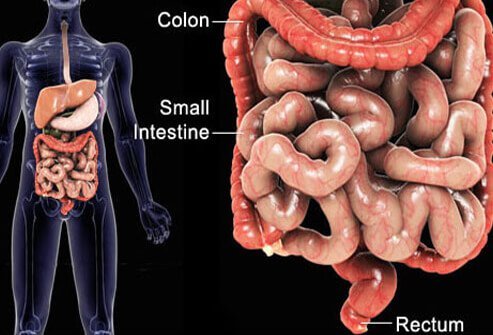Can ulcerative colitis be cured with surgery?

Surgery can cure ulcerative colitis.
Ulcerative colitis is a chronic inflammatory condition of the colon (the large bowel) characterized by frequent bloody diarrhea (10-30 episodes) throughout the day. Medicines can only reduce the intensity of its symptoms and surgery is the only option to cure it.
About 23%-45% of people with ulcerative colitis end up having surgery.
Surgery is needed in the following instances:
- Medicines fail to provide adequate relief of symptoms
- The patient is heavily dependent on steroids for ulcerative colitis
- Steroid therapy becomes ineffective
- There are intolerable side effects of medications
- The disease comes with a sudden onset and severe symptoms
- The affected colon tears or bleeds
- The growth of the child gets retarded
- Abnormal growths (suspicious of cancer) develop in the colon
Patients may choose surgery over medicines when
- they want to improve their quality of life,
- they want a permanent cure, or
- they want to reduce their risk of colon cancer (ulcerative colitis patients are more likely to develop colon cancer).
What are the surgeries for ulcerative colitis?
Different types of surgeries are done for ulcerative colitis depending on the patient’s preference and the surgeon’s experience. The most common are as follows:
- Total proctocolectomy with ileal pouch-anal anastomosis (IPAA): This procedure is commonly adopted in ulcerative colitis surgeries. It removes the colon and rectum with the creation of a pseudo-rectum (J pouch) from a portion of the small intestine. This operation is usually completed in two stages in the form of two separate surgeries performed about two months apart. Some patients may require three separate surgeries.
- Proctocolectomy with ileostomy: This is another common surgical procedure that involves the removal of the entire colon and rectum. The small intestine is connected to the abdominal wall through an opening (stoma) so that stool empties into a bag. This surgery is usually done in elderly patients and obese patients.
How long does it take to recover from the surgery for ulcerative colitis?
The hospital stay after the surgery is usually 3-7 days. During this period, the surgeon will monitor the surgical wound and watch for complications, if any. The patient will be advised to follow a specific diet and will be advised how to take care of the surgical wound or the stoma and the stool bag, if any.
The recovery period for the surgical procedures will generally be 4-6 weeks. During this period, the patient will have regular follow-ups with the doctor.
What are the risks of the surgery for ulcerative colitis?
Every surgery carries some complications. The possible risks that come with the surgery for ulcerative colitis are
- Pouchitis: This is an inflammation or infection of the pseudo-rectum (pouch) with signs and symptoms, such as diarrhea, frequent bowel movements, stomach cramps, pain, fever, and joint pain.
- Bowel obstruction: This is a blockage in the bowel caused by scarring of the surgical wound. As a result, signs such as cramping, nausea, and vomiting develop.
- Pouch failure: The pseudo-rectum (pouch) fails to collect the waste. This happens within 5 years in about four out of every 100 patients with IPAA.
- Toxic megacolon: This is a serious complication in which the colon swells and becomes rapidly infected. Go to the emergency room immediately if you develop a fever, abdominal pain, or severe constipation after the surgery.
- Irritation or infection of the stoma
- Nutritional deficiencies
- Damage to the organ during surgery

SLIDESHOW
Inflammatory Bowel Disease (IBD) Causes, Symptoms, Treatment See Slideshow
Medically Reviewed on 7/8/2022
References
American College of Gastroenterology.
<https://gi.org/topics/ulcerative-colitis/>.